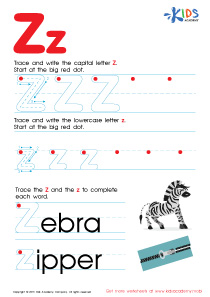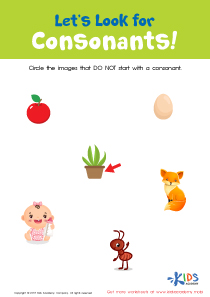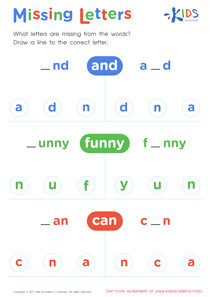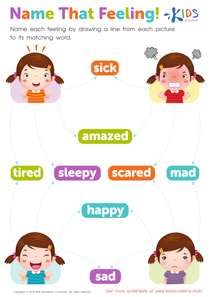Alphabet Recognition Extra Challenge Tracing Letters Worksheets for Ages 3-9
3 filtered results
-
From - To
Unlock the fun of learning with our "Alphabet Recognition Extra Challenge Tracing Letters Worksheets" designed for children aged 3-9! These engaging worksheets offer an exciting way for young learners to deepen their letter recognition skills. Through tracing activities, kids sharpen their motor skills while becoming familiar with the alphabet's structure. Each worksheet is crafted to spark creativity and make learning enjoyable. Perfect for both classroom and home use, these extra challenge worksheets provide a great opportunity for practice and reinforcement. Help your child master the alphabet in a playful and effective way—download and print the worksheets today!


Letter A Tracing Page
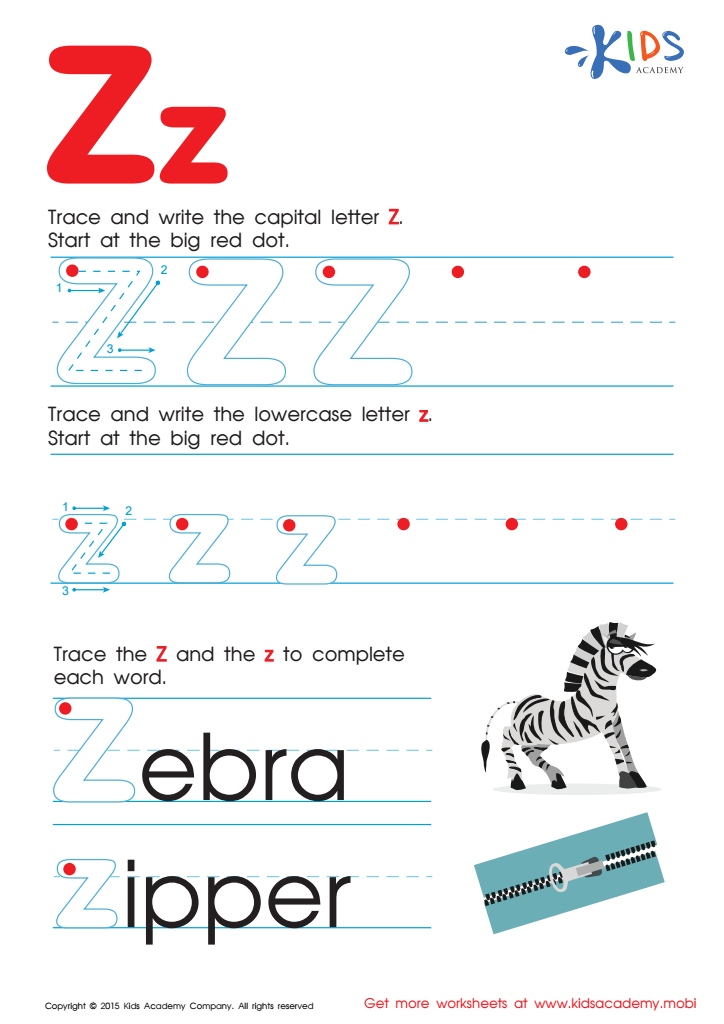

Letter Z Tracing Page
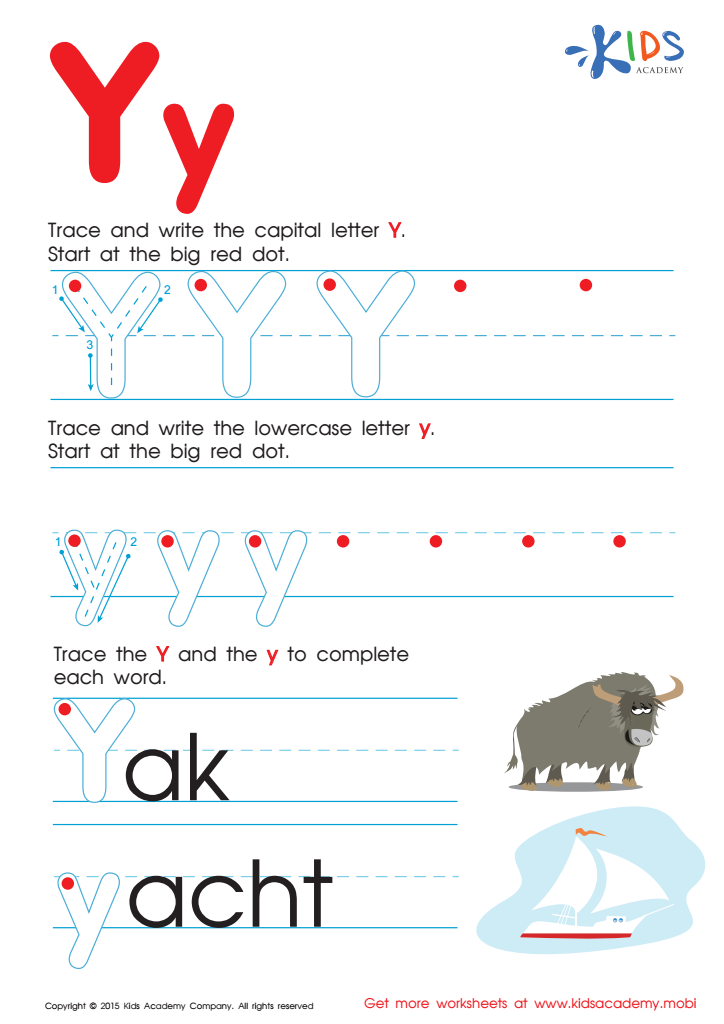

Letter Y Tracing Page
Alphabet recognition is a foundational skill in early literacy that helps children understand the relationship between letters and sounds, which is essential for reading and writing. The "Alphabet Recognition Extra Challenge Tracing Letters" activity is particularly beneficial for children aged 3-9, as it integrates motor skill development with cognitive learning. Tracing letters not only aids in letter recognition but also enhances fine motor skills, such as grip, coordination, and control, which are crucial for writing.
Parents and teachers should care about this activity because it provides an engaging way for children to practice letters while enjoying the process. As children trace, they reinforce memory through muscle movement, leading to better retention of letter shapes. Additionally, this challenge can be tailored to various skill levels—allowing advanced students to tackle more complex letter formations while providing support for beginners.
Furthermore, reinforcing this skill at home or in the classroom creates a nurturing environment where children feel motivated and confident. By prioritizing alphabet recognition through fun, hands-on activities, parents and teachers set the stage for lifelong learning, ensuring that children are well-prepared for future literacy challenges and laying a solid foundation for academic success.
 Assign to My Students
Assign to My Students










